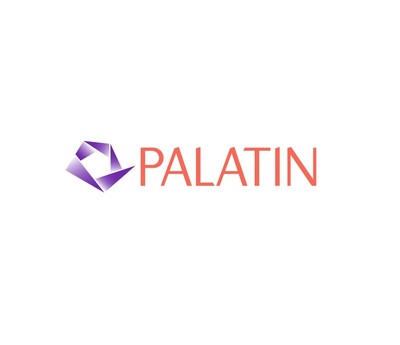Palatin Completes Enrollment in Phase 2 Clinical Study of Bremelanotide (MC4R Agonist) Co-Administered with Tirzepatide (GLP-1/GIP) for the Treatment of Obesity
Palatin Technologies (NYSE American: PTN) has completed enrollment in its Phase 2 clinical study evaluating bremelanotide co-administered with tirzepatide for obesity treatment. The study enrolled approximately 120 patients, double the target, across four US sites. Topline results are expected by March 2025.
The study aims to demonstrate that combining an MC4R agonist with GLP-1/GIP may produce synergistic effects on weight loss at lower, better-tolerated doses. This research addresses the current challenges with GLP-1/GIP therapies, where 67% of patients discontinue treatment due to side effects and experience weight rebound after plateauing in the first year.
Palatin Technologies (NYSE American: PTN) ha completato l'arruolamento nel suo studio clinico di Fase 2 che valuta il bremelanotide somministrato insieme al tirzepatide per il trattamento dell'obesità. Lo studio ha arruolato circa 120 pazienti, il doppio dell'obiettivo, in quattro sedi negli Stati Uniti. I risultati preliminari sono attesi entro marzo 2025.
Lo studio mira a dimostrare che la combinazione di un agonista MC4R con GLP-1/GIP può produrre effetti sinergici sulla perdita di peso a dosi più basse e meglio tollerate. Questa ricerca affronta le attuali sfide con le terapie GLP-1/GIP, poiché il 67% dei pazienti abbandona il trattamento a causa degli effetti collaterali e sperimenta un recupero di peso dopo aver raggiunto un plateau nel primo anno.
Palatin Technologies (NYSE American: PTN) ha completado el reclutamiento en su estudio clínico de Fase 2 que evalúa el bremelanotida administrado junto con el tirzepatide para el tratamiento de la obesidad. El estudio reclutó aproximadamente 120 pacientes, el doble de la meta, en cuatro centros de EE. UU. Se esperan resultados preliminares para marzo de 2025.
El estudio tiene como objetivo demostrar que la combinación de un agonista MC4R con GLP-1/GIP puede producir efectos sinérgicos en la pérdida de peso a dosis más bajas y mejor toleradas. Esta investigación aborda los desafíos actuales con las terapias GLP-1/GIP, donde el 67% de los pacientes interrumpe el tratamiento debido a efectos secundarios y experimenta un rebote de peso después de estabilizarse en el primer año.
팔라틴 테크놀로지스 (NYSE American: PTN)는 비만 치료를 위한 타이르제파타이드와 함께 투여되는 브레멜란타이드의 임상 2상 연구에 대한 등록을 완료했습니다. 이 연구는 미국의 네 개의 장소에서 목표의 두 배인 약 120명의 환자를 등록했습니다. 최종 결과는 2025년 3월까지 예상됩니다.
이 연구는 MC4R 작용제를 GLP-1/GIP와 결합하면 더 낮고 잘 견딜 수 있는 용량에서 체중 감소에 시너지 효과를 낼 수 있음을 입증하는 것을 목표로 하고 있습니다. 이 연구는 GLP-1/GIP 요법과 관련된 현재의 문제를 다룹니다. 67%의 환자가 부작용으로 치료를 중단하고 첫 해에 정체된 후 체중이 되돌아가는 경험을 하게 됩니다.
Palatin Technologies (NYSE American: PTN) a terminé le recrutement de son étude clinique de Phase 2 évaluant le bremelanotide administré avec le tirzepatide pour le traitement de l'obésité. L'étude a recruté environ 120 patients, soit le double de l'objectif, dans quatre centres aux États-Unis. Les résultats préliminaires sont attendus d'ici mars 2025.
Cette étude vise à démontrer que la combinaison d'un agoniste MC4R avec GLP-1/GIP peut produire des effets synergiques sur la perte de poids à des doses plus faibles et mieux tolérées. Cette recherche aborde les défis actuels liés aux thérapies GLP-1/GIP, où 67 % des patients interrompent le traitement en raison des effets secondaires et connaissent un rebond de poids après un plateau au cours de la première année.
Palatin Technologies (NYSE American: PTN) hat die Rekrutierung in ihrer klinischen Phase-2-Studie abgeschlossen, die Bremelanotid in Kombination mit Tirzepatid zur Behandlung von Adipositas bewertet. In der Studie wurden etwa 120 Patienten rekrutiert, was doppelt so viel ist wie das Ziel, an vier Standorten in den USA. Die vorläufigen Ergebnisse werden bis März 2025 erwartet.
Die Studie zielt darauf ab zu zeigen, dass die Kombination eines MC4R-Agonisten mit GLP-1/GIP synergetische Effekte auf den Gewichtsverlust bei niedrigeren, besser verträglichen Dosen erzielen kann. Diese Forschung beschäftigt sich mit den aktuellen Herausforderungen von GLP-1/GIP-Therapien, da 67% der Patienten aufgrund von Nebenwirkungen die Behandlung abbrechen und nach dem Plateau im ersten Jahr einen Gewichtsrückgang erleben.
- Double target enrollment achieved due to strong patient demand
- Addressing significant market need with 67% discontinuation rate in current treatments
- Potential for synergistic effects in weight loss at lower doses
- Results not expected until Q1 2025
- Faces competition in crowded obesity treatment market
- Success of combination therapy not yet proven
Insights
This Phase 2 clinical trial completion marks a significant milestone in obesity treatment research. The study's 2x target enrollment indicates strong market demand and investigator interest. The combination of MC4R agonist (bremelanotide) with GLP-1/GIP (tirzepatide) represents an innovative approach to address current treatment limitations.
The trial addresses critical market needs, particularly the 67% discontinuation rate of GLP-1/GIP therapies due to side effects and efficacy plateaus. The focus on lower, better-tolerated doses while maintaining efficacy could provide a competitive advantage. The genetic validation of MC4R's role in appetite regulation strengthens the scientific rationale.
Topline results in Q1 2025 will be important for PTN's obesity pipeline, potentially impacting both general obesity and rare disease indications. The study's design, including multiple treatment arms and comprehensive assessments, will provide valuable data for future development strategies.
- Topline results expected in 1Q calendar year 2025
- Study is assessing the co-administration of bremelanotide and tirzepatide on reducing body weight
- Data will inform and support the Company's obesity programs using novel, long-acting and highly selective MC4R peptide and small molecule compounds for treating general obesity, weight loss management, and rare/orphan MC4R pathway diseases, including hypothalamic obesity
The study enrolled approximately twice the target of 60 patients at four US sites, primarily due to strong patient demand and efficiency of the clinical trial sites. All patients in the study are expected to have completed all dosing and patient visits by the end of January 2025, with topline data readout expected before the end of March 2025.
"We believe the study data will demonstrate that combination of an MC4R agonist, such as bremelanotide, with a glucagon-like peptide 1/gastric inhibitory polypeptide (GLP-1/GIP), such as tirzepatide, may result in synergistic effects on weight loss, allowing for increased weight loss at lower and better tolerated doses," said Carl Spana, Ph.D., President and Chief Executive Officer of Palatin. "We believe the data from this MC4R + GLP-1/GIP combination study will inform and support our programs for treating general obesity, weight loss management, and potentially, rare/orphan MC4R pathway diseases, including hypothalamic obesity."
Dr. Spana added, "Weight loss is quick and substantial with GLP-1/GIP therapies, but both healthcare professionals and patients are seeking alternative treatments to these therapies due to
The primary endpoint of the BMT-801 trial is to demonstrate the safety and increased efficacy of co-administration of bremelanotide with tirzepatide on reducing body weight. Patients are treated with tirzepatide-only for four weeks, have eligibility confirmed, then randomized to one of four treatment regimens. Patients undergo multiple assessments of safety and efficacy to help profile the effectiveness of bremelanotide in treating general obesity as a stand-alone treatment or in conjunction with GLP-1/GIP therapy. Additional trial information can be found at https://clinicaltrials.gov via the identifier NCT06565611.
About Melanocortin 4 Receptor Agonists Effect on Obesity
Genetic analysis has identified the melanocortin 4 receptor (MC4R) of the paraventricular nucleus of the hypothalamus as playing a central role in appetite regulation. Genetic mutations that inhibit signaling in the MC4R pathway lead to hyperphagia, decreased energy expenditure and early-onset obesity; such mutations have been identified as the cause of several rare genetic obesity disorders. Agouti-related peptide is an endogenous antagonist of the MC4R that works with neuropeptide Y to stimulate appetite, whereas MC4R agonists such as α- and β-melanocyte-stimulating hormone promote satiety. Agonism of the MC4R therefore represents an attractive target for potential obesity treatments.
About Melanocortin Receptor Agonists
The melanocortin receptor ("MCR") system has effects on inflammation, immune system responses, metabolism, food intake, and sexual function. There are five melanocortin receptors, MC1R through MC5R. Modulation of these receptors, through use of receptor-specific agonists, which activate receptor function, or receptor-specific antagonists, which block receptor function, can have medically significant pharmacological effects.
Many tissues and immune cells located in the eye (and other places, for example the gut and kidney) express melanocortin receptors, empowering our opportunity to directly activate natural pathways to resolve disease inflammation.
About Obesity
Obesity, which is defined as a body mass index (BMI) ≥30 kg/m2, represents a rising worldwide public health concern. Obesity is associated with an increased risk of overall mortality and serious health conditions, including high blood pressure, high cholesterol, type 2 diabetes, coronary heart disease, stroke and certain cancers. Health-related quality of life is significantly lower among adults with obesity, and obesity is associated with increased health care resource use and high economic burden. Safe and effective obesity treatments therefore remain a critical unmet need. The global increase in the prevalence of obesity is a public health issue that has severe cost implications to healthcare systems. In
About Palatin
Palatin is a biopharmaceutical company developing first-in-class medicines based on molecules that modulate the activity of the melanocortin receptor systems, with targeted, receptor-specific product candidates for the treatment of diseases with significant unmet medical need and commercial potential. Palatin's strategy is to develop products and then form marketing collaborations with industry leaders to maximize their commercial potential. For additional information regarding Palatin, please visit Palatin's website at www.Palatin.com and follow Palatin on Twitter at @PalatinTech.
Forward-looking Statements
Statements in this press release that are not historical facts, including statements about future expectations of Palatin Technologies, Inc., such as statements about Palatin products in development, clinical trial results, potential actions by regulatory agencies including the FDA, regulatory plans, development programs, proposed indications for product candidates, and market potential for product candidates are "forward-looking statements" within the meaning of Section 27A of the Securities Act of 1933, Section 21E of the Securities Exchange Act of 1934 and as that term is defined in the Private Securities Litigation Reform Act of 1995. Palatin intends that such forward-looking statements be subject to the safe harbors created thereby. Such forward-looking statements involve known and unknown risks, uncertainties and other factors that could cause Palatin's actual results to be materially different from its historical results or from any results expressed or implied by such forward-looking statements. Palatin's actual results may differ materially from those discussed in the forward-looking statements for reasons including, but not limited to, results of clinical trials, regulatory actions by the FDA and other regulatory and the need for regulatory approvals, Palatin's ability to fund development of its technology and establish and successfully complete clinical trials, the length of time and cost required to complete clinical trials and submit applications for regulatory approvals, products developed by competing pharmaceutical, biopharmaceutical and biotechnology companies, commercial acceptance of Palatin's products, and other factors discussed in Palatin's periodic filings with the Securities and Exchange Commission. Palatin is not responsible for updating events that occur after the date of this press release.
Palatin Technologies® is a registered trademark of Palatin Technologies, Inc.
![]() View original content to download multimedia:https://www.prnewswire.com/news-releases/palatin-completes-enrollment-in-phase-2-clinical-study-of-bremelanotide-mc4r-agonist-co-administered-with-tirzepatide-glp-1gip-for-the-treatment-of-obesity-302292542.html
View original content to download multimedia:https://www.prnewswire.com/news-releases/palatin-completes-enrollment-in-phase-2-clinical-study-of-bremelanotide-mc4r-agonist-co-administered-with-tirzepatide-glp-1gip-for-the-treatment-of-obesity-302292542.html
SOURCE Palatin Technologies, Inc.








